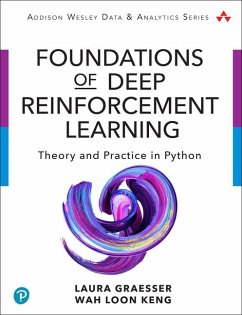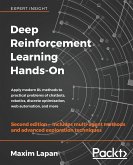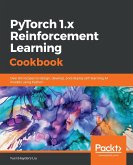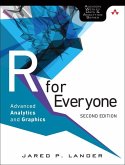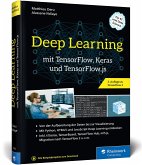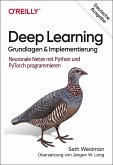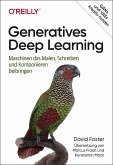In just a few years, deep reinforcement learning (DRL) systems such as DeepMinds DQN have yielded remarkable results. This hybrid approach to machine learning shares many similarities with human learning: its unsupervised self-learning, self-discovery of strategies, usage of memory, balance of exploration and exploitation, and its exceptional flexibility. Exciting in its own right, DRL may presage even more remarkable advances in general artificial intelligence. Deep Reinforcement Learning in Python: A Hands-On Introduction is the fastest and most accessible way to get started with DRL. The authors teach through practical hands-on examples presented with their advanced OpenAI Lab framework. While providing a solid theoretical overview, they emphasize building intuition for the theory, rather than a deep mathematical treatment of results. Coverage includes: * Components of an RL system, including environment and agents * Value-based algorithms: SARSA, Q-learning and extensions, offline learning * Policy-based algorithms: REINFORCE and extensions; comparisons with value-based techniques * Combined methods: Actor-Critic and extensions; scalability through async methods * Agent evaluation * Advanced and experimental techniques, and more * How to achieve breakthrough machine learning performance by combining deep neural networks with reinforcement learning * Reduces the learning curve by relying on the authors' OpenAI Lab framework: requires less upfront theory, math, and programming expertise * Provides well-designed, modularized, and tested code examples with complete experimental data sets to illuminate the underlying algorithms * Includes case studies, practical tips, definitions, and other aids to learning and mastery * Prepares readers for exciting future advances in artificial general intelligence The accessible, hands-on, full-color tutorial for building practical deep reinforcement learning solutions * How to achieve breakthrough machine learning performance by combining deep neural networks with reinforcement learning * Reduces the learning curve by relying on the authors' OpenAI Lab framework: requires less upfront theory, math, and programming expertise * Provides well-designed, modularized, and tested code examples with complete experimental data sets to illuminate the underlying algorithms * Includes case studies, practical tips, definitions, and other aids to learning and mastery * Prepares readers for exciting future advances in artificial general intelligence
Hinweis: Dieser Artikel kann nur an eine deutsche Lieferadresse ausgeliefert werden.
Hinweis: Dieser Artikel kann nur an eine deutsche Lieferadresse ausgeliefert werden.

